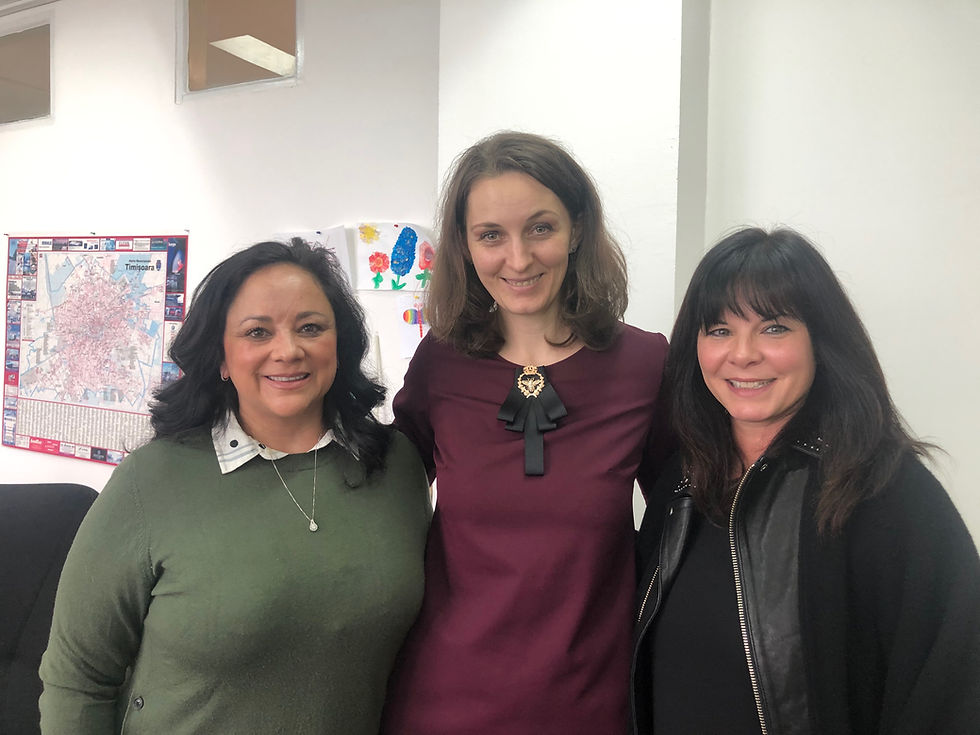How Healing from Sex Trafficking Happens for Survivors
- Uncaged
- Feb 5, 2020
- 3 min read
Updated: Mar 2, 2020
Hello Friends,
I have so much joy as we move closer to opening the first Sanctuary this year. We have a lot to do and a long way to go, but we can finally approach the starting line! As we focus on preparing to get the program in place, I wanted to share a bit more about how transformation in the Sanctuary will happen. Starting survivors’ healing journeys is complex work. We’re so glad we have a team of experts like Dr. Vanessa Snyder to guide us.
Dr. Snyder is designing the therapeutic elements that will aid survivors’ restoration. She’s currently the Director of the Institute for Trauma and Recovery at Richmont University. She’s been researching best practices in accompanying survivors for almost ten years! Our Uncaged team sat down with her to learn from her expertise. We’re excited to share a snippet of that conversation with you below!
As always, we are so grateful for your encouragement and support.
-Kim
Uncaged: Can you tell us a little bit about the trauma that happens in sex trafficking?
Dr. Snyder: I think one of the distinctions of trauma in sex trafficking is its complexity. Many trafficking survivors already have a history of some kind of trauma, or many traumas, during their developmental years. Those traumas may include abuse, neglect, poverty, war, or a host of other things. But trafficking becomes an additional horror they experience. Trafficking is a trauma that occurs over a long period of time. Most traumatic events happen in one occurrence -- a car accident, a death, events like that. In sex trafficking, survivors experience many traumatic incidents over a lifetime.

The fact that it’s sexual trauma magnifies the already devastating effects. Sexual experiences are always powerful. The sexual nature of the trauma can bring in a spiritual element to the wounds. For survivors, the trauma can become deeply ingrained in the mind, body, and soul.
Uncaged: Wow. Given that the trauma is that complicated and intense, is healing really possible?
Dr. Snyder: Yes! Healing is absolutely possible, but it looks different for each individual. We have to make space for what survivors think health looks like for them. Sex trafficking takes away survivors’ ability to say who they want to be and what they want their lives to be like. The last thing we would want to do is repeat that pattern when we’re trying to help!
Uncaged: That makes sense. If it depends so much on the individual, what do best practices look like?
Dr. Snyder: Healing for all survivors of sexual abuse, and particularly sex trafficking, includes some necessary components across individuals. For example, every survivor of complex trauma needs a place that is safe and stable. We know that sex trafficking takes away three things from survivors: 1) Voice 2) Choice and 3) Power. Equipping survivors to heal means giving back their ability to choose, speak, and direct their own lives.
At the Sanctuary, that means we actually give survivors the choice to stay or to leave. Gradually, we give survivors the chance to make choices with different levels of impact. They can choose what they want to eat for breakfast. They can choose what they want to do in their academic empowerment session. Eventually they have to re-learn how to absorb good and bad consequences for choices they make. Our job is to provide a safe space where they can explore at their own pace, and boundaries help make the space safe.
Uncaged: When you describe that balance, it almost sounds a bit like a family.

Dr. Snyder: It does have some similarities to a family: community, connection, and relationship. Survivors need to experience consistent care, from a variety of people. Staff members at the Sanctuary will be trained in a trauma-informed way. Every interaction at the Sanctuary will either accelerate or impede healing. In therapy, we often say that 60% of healing work happens in the formation of relationships.
Uncaged: The model you’re describing at the Sanctuary sounds incredible! We know that a lot of people around the world want to pour into the work there. How can people far away support survivors?
Dr. Snyder: That’s a great question. First and foremost, I would invite everyone to pray for survivors. It’s a long, hard road for them even after they're free, and prayer makes an enormous difference. The second suggestion I’d offer is for people to take stock of their own skills and abilities. Then, they can see how they could join Uncaged and other anti-trafficking organizations’ efforts. No one person, not even one organization, will turn the tide on Human Trafficking. We all need to have our hands open to connect globally. Every person has valuable talents and treasures to share. And we need every gift to end this evil.
Uncaged: Thank you so much, Dr. Snyder. We’re so grateful for your work and your vision.





Comments